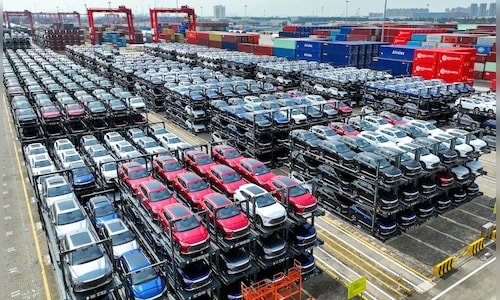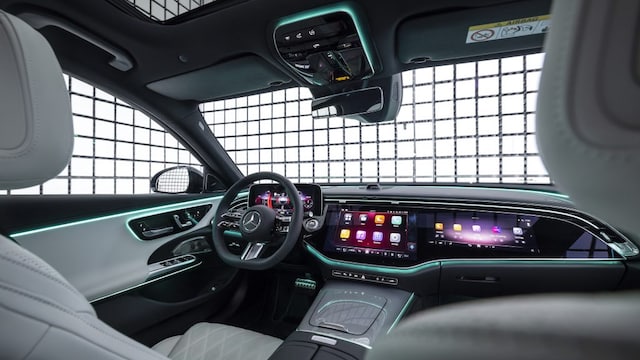
 1 / 9
1 / 9Passenger vehicle (PV) retail sales fell by 14%, two-wheeler (2W) sales dropped by 12%, and medium and heavy commercial vehicle (MHCV) sales decreased by 11%, according to a CNBC-TV18 poll. Two-wheeler sales is expected to decline 6% compared to a year earlier, according to Nomura’s estimates.
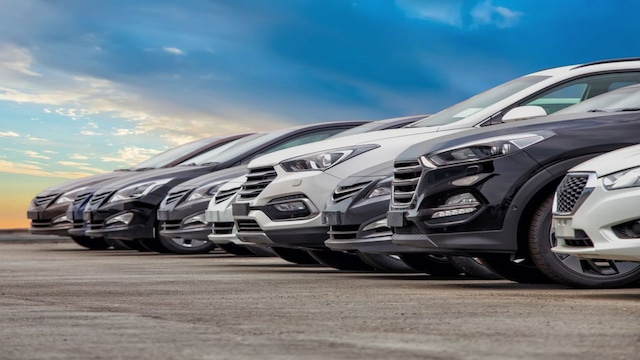
 2 / 9
2 / 9Significant discounts offered in December 2024 encouraged buyers to purchase vehicles earlier than planned, a phenomenon known as pre-buying. This is one of the big reasons for slow sales in February. Nomura’s analysis suggests that the high sales volume at the end of 2024 left fewer customers in the market in early 2025.

 3 / 9
3 / 9Secondly, the December discounts were followed by price hikes in January and February 2025, potentially discouraging buyers due to higher costs. Thirdly, a downturn in stock markets during this period may have shaken consumer confidence, reducing their willingness to spend on big-ticket items like vehicles.

 4 / 9
4 / 9Fourthly, financing companies responded to rising loan delinquencies by lowering Loan to Value (LTV) ratios, meaning buyers could borrow less relative to a vehicle’s value. In the passenger vehicle segment, wholesale figures are expected to increase by 2% compared to February 2024. However, dealer surveys reveal that retail demand remains weak, leading to an accumulation of unsold stock.
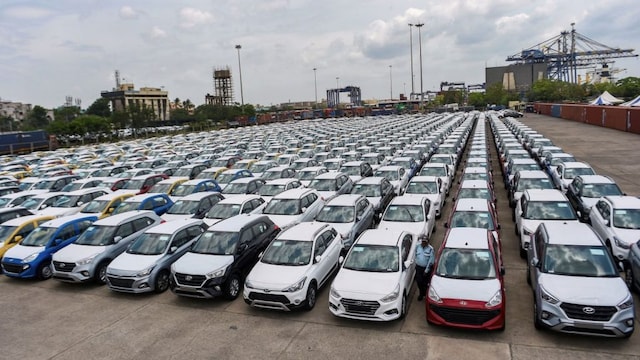
 5 / 9
5 / 9Channel inventory has now surpassed 40 days, suggesting that dealers are holding vehicles longer than ideal. If this trend continues, Nomura warns that manufacturers might need to offer steeper discounts starting in March 2025 to clear excess stock. To counteract this, some two-wheeler makers have announced bigger discounts or reduced prices to stimulate sales.

 6 / 9
6 / 9Estimates suggest that medium and heavy commercial vehicle (M&HCV) wholesales are likely to decrease by 8% year-on-year in February 2025. This decline reflects ongoing concerns about slowing capital expenditure in the industry, as highlighted by Nomura.
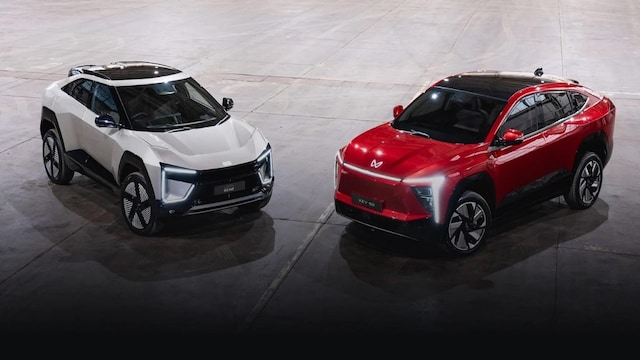
 7 / 9
7 / 9In contrast to the challenges in other segments, the tractor industry is poised for growth. Experts say that tractor wholesales will rise by 11% year-on-year in February 2025. This positive outlook is supported by strong performance from key players like Mahindra & Mahindra (M&M), which reported a 12% year-on-year increase in tractor sales, reaching 24,225 units compared to 21,672 units in February 2024.

 8 / 9
8 / 9Company-specific sales data for February 2025 paints a mixed picture across the automotive sector. In the two-wheeler segment, Bajaj Auto is likely to see a 4% year-on-year increase in sales, reaching 3.60 lakh units, compared to 3.47 lakh units, while Hero MotoCorp is likely to see a 6% decline to 4.40 lakh units from 4.68 lakh units. TVS Motor is also expected to see a 6% rise to 3.90 lakh units from 3.68 lakh units, and Royal Enfield is likely to see 15% growth, climbing to 87,625 units from 75,935 units.
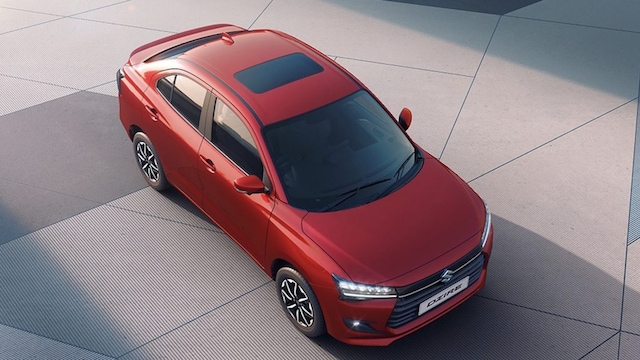
 9 / 9
9 / 9In the four-wheeler segment, Maruti Suzuki’s sales are likely to grow 4% to 2.05 lakh units from 1.97 lakh units, and M&M Auto sales are likely to surge by 12% to 81,840 units from 72,923 units. Conversely, Tata Motors may experience a 4% drop to 83,153 units from 86,406 units, while Ashok Leyland may post a modest 1% increase to 17,596 units from 17,464 units.
